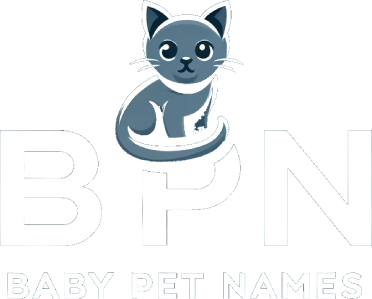Introduction
Plants are the ultimate food source. They provide sustenance to humans and animals, serving as the foundation of our food chain. From fruits and vegetables to grains and legumes, plants offer a diverse range of nutrients essential for our health and well-being. In this comprehensive analysis, we will delve deeper into the importance of plants as a food source, explore the various nutritional benefits they offer, and discuss the environmental and ethical considerations associated with plant-based diets.
Nutritional Benefits of Plants
Plants are rich in essential nutrients that are vital for our overall health. They are abundant sources of fiber, vitamins, minerals, and antioxidants. Fiber, found in fruits, vegetables, whole grains, and legumes, plays a crucial role in supporting digestive health, regulating blood sugar levels, and lowering cholesterol. Vitamins such as vitamin C, vitamin A, and various B vitamins are found in a wide array of plant-based foods and are essential for maintaining our immune system, vision, skin health, and energy levels. Minerals like calcium, iron, and potassium are also prevalent in plant foods and are necessary for bone health, oxygen transport, and electrolyte balance. Antioxidants, found in colorful fruits and vegetables, help protect our cells from damage caused by free radicals, thus reducing the risk of chronic diseases such as cancer and heart disease.
Plant-based Protein
Contrary to common misconceptions, plants can be excellent sources of protein. Legumes, nuts, seeds, soy products, and whole grains are all rich in protein and can provide all the essential amino acids our bodies need to function properly. Plant-based proteins are not only nutritious but also low in saturated fat and cholesterol-free, making them a heart-healthy alternative to animal proteins. Incorporating a variety of plant-based protein sources into your diet can ensure you meet your daily protein requirements while reaping the benefits of a more sustainable and environmentally-friendly food choice.
Environmental and Ethical Considerations
Choosing to consume more plants and less animal products can have a positive impact on the environment and animal welfare. The agricultural industry is a significant contributor to greenhouse gas emissions, deforestation, and water pollution. By shifting towards a more plant-based diet, we can reduce our carbon footprint, preserve natural habitats, and mitigate the effects of climate change. Additionally, opting for plant-based foods can help minimize the suffering of animals raised in factory farms for food production. Embracing a plant-forward approach to eating not only benefits our health but also aligns with our values of compassion and sustainability.
Plant-based Diet Myths Debunked
There are several misconceptions surrounding plant-based diets that often deter individuals from adopting a more plant-centric lifestyle. Let’s debunk some common myths:
- Myth #1: Plant-based diets lack protein – As mentioned earlier, plants can be excellent sources of protein. By consuming a variety of plant-based protein sources, you can easily meet your protein needs.
- Myth #2: Plant-based diets are deficient in essential nutrients – With proper planning and a diverse selection of plant foods, you can obtain all the essential nutrients your body requires.
- Myth #3: Plant-based diets are expensive – While some specialty plant-based products may be pricey, a diet centered around whole plant foods such as grains, legumes, fruits, and vegetables can be quite affordable.
- Myth #4: Plant-based diets are bland and boring – On the contrary, plant-based cuisines offer a wide range of flavors and culinary possibilities. With the right recipes and seasoning, plant-based meals can be delicious and satisfying.
- Myth #5: Plant-based diets are inadequate for athletes – Many athletes thrive on plant-based diets, which can provide the necessary energy, protein, and nutrients for optimal performance and recovery.
Frequently Asked Questions (FAQs)
- Can you get enough protein from a plant-based diet?
-
Yes, by including a variety of plant-based protein sources such as legumes, nuts, seeds, tofu, and whole grains, you can meet your protein needs.
-
Are plant-based diets suitable for children and pregnant women?
-
Plant-based diets can be suitable for individuals of all ages, including children and pregnant women, as long as they are well-planned to ensure all nutrient requirements are met.
-
How can I ensure I get enough iron on a plant-based diet?
-
Consuming iron-rich plant foods such as lentils, beans, tofu, spinach, and fortified cereals, along with foods high in vitamin C to enhance iron absorption, can help meet your iron needs.
-
Will I lack calcium if I don’t consume dairy products on a plant-based diet?
-
Calcium can be obtained from plant sources like leafy green vegetables, fortified plant milks, tofu, and almonds. Adequate vitamin D intake and weight-bearing exercise also support calcium absorption.
-
Is it challenging to dine out on a plant-based diet?
- While some restaurants may have limited plant-based options, many establishments now offer plant-friendly choices. You can also communicate your dietary preferences to chefs who are often willing to accommodate.
In conclusion, plants are indeed the ultimate food source, providing us with a myriad of essential nutrients, promoting environmental sustainability, and upholding ethical values. By embracing a more plant-centric diet and debunking common myths associated with plant-based eating, we can cultivate a healthier, more compassionate, and environmentally conscious way of nourishing ourselves and the planet.
